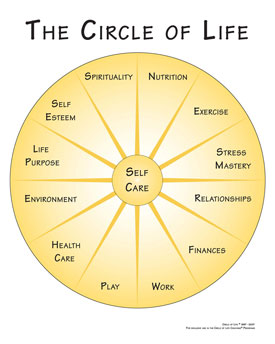| Therapy tends toward… | Coaching tends toward… |
| Past > Present | Present > Future |
| Pain | Frustration / Desire |
| Feelings – Discussion Oriented | More Action Oriented |
| Usually A Measured Pace | Often A Rapid Pace |
| Issue Resolution | Problem Solving / Life Design / Resourcing |
| Provider/Patient RelationshipInherent Power Imbalance | Collaborative/Equal Partnership |
| Reactions | Responses |
| Diagnosing / Treating Medical Model | Behavioral Change, Goals, Transitions, Life Style Changes: Performance Model |
| Coping Mechanisms | Building Capacity, Self Efficacy,Resiliency, Reserves |
| Healing | Achievement |
| Anxiety, Depression, Trauma, Emotional Scars. Addiction, CompulsionsEmotional Issues, Healing Of Emotional Damage, Neuroses, Psychoses | Stress Reduction, Weight Loss, Smoking Cessation, Improving Communication and Relationships, Healthy Lifestyle/Wellness, Finances, Parenting, Life/Career Transitions,
How To Use A “Coach” Approach With Employees, Time Management |
Transitional or Integrated Coaching
- Some clients begin with coaching and during the process, uncover therapeutic issues. These clients are offered therapy as a resource.
- Most therapy clients are offered coaching when treatment is terminated. A six week coaching model is used as a transition from therapy to actions based on therapeutic gains.
- Some clients in therapy get “stuck” in processing loops. These clients are offered short-term coaching as a resource to help them move forward. Some return to therapy after 6-8 weeks of coaching; some stay in therapy while in a coaching process; some do not return to therapy as the coaching better meets their needs.
- Some clients present with issues that could be directed toward coaching or therapy. Default is coaching provided coaches are skilled enough to recognize therapeutic issues and refer.
Examples:
A woman who had nursed her sister through a long-term illness and death contacted Hospice to join a grief group. In the evaluation, Hospice determined she needed therapy rather than a non-clinical group. She entered therapy at our counseling center, but after 2 months felt she was not making progress. Her therapist referred her to a six-week Circle of Life coaching group. After she completed her Circle Assessment, she determined she would focus on the life aspect of “play” so that she could learn once again to embrace life. By the end of six weeks, her affect and outlook had significantly improved. As a result of her Circle experience, she was reconnecting with friends; once again writing short stories; and took an “action step” to book a cruise vacation within the next 2 months in order to nurture her.
A woman came into a Circle coaching group with the stated goal of improving her communication with her husband, and with her boss. She felt that she was expected to cover for anything either one of these two powerful men left undone, or she was very frustrated with this. Halfway through the group, she received a phone call from a school counselor informing her that her 13 year old daughter had just disclosed her father was sexually abusing her. She contacted the coach, who helped her process the emotional storm she was in. The coach referred her to a therapist, her child to another therapist, and had her come into a group coaching session one final time to receive support from the group and say goodbye.

